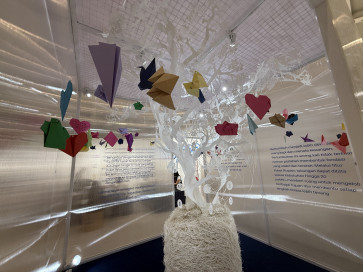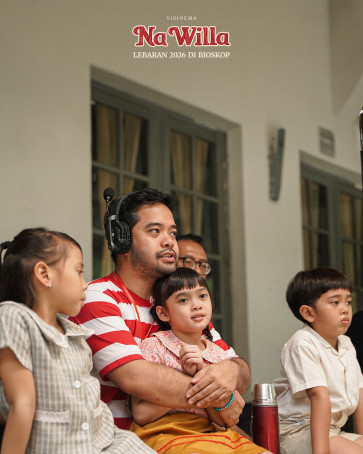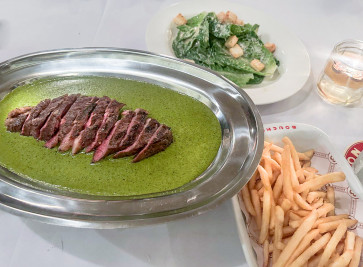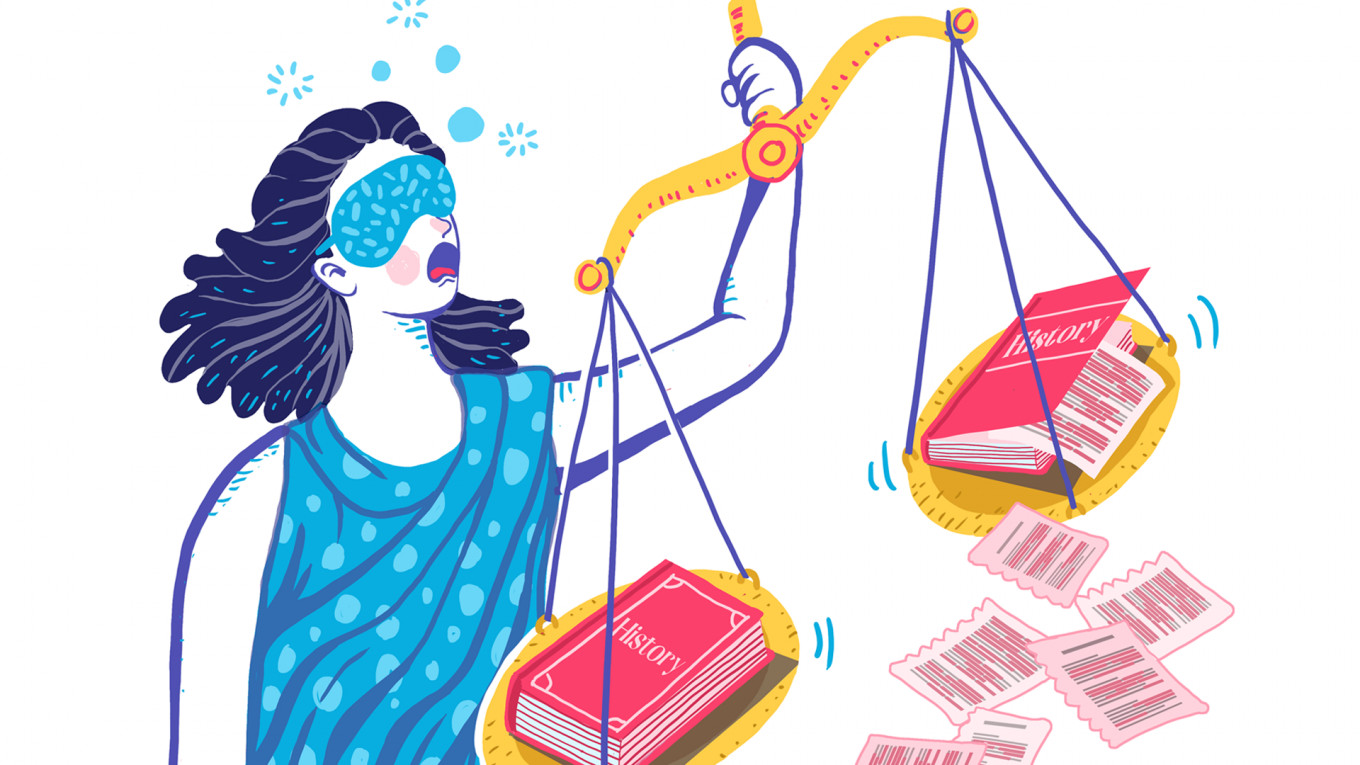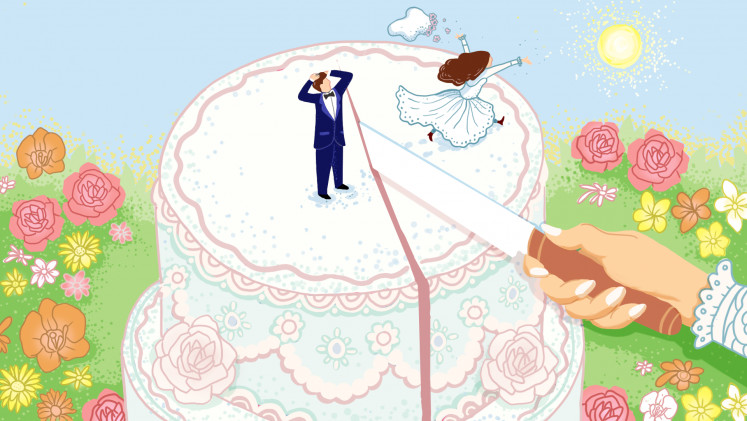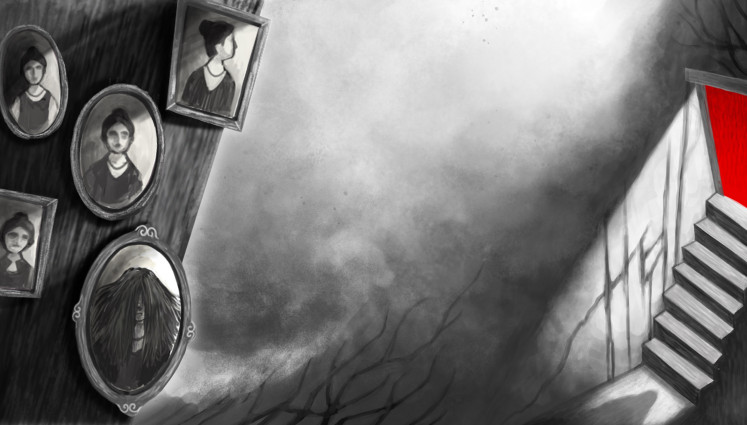When I was growing up in the 1990s, history was something to be memorized, not understood.
Like most Indonesian schoolchildren of my generation, I was taught a single, sanitized version of the national past. It came bound in flimsy government-issued textbooks, echoed by our teachers and reinforced by the encyclopedic RPUL (Rangkuman Pengetahuan Umum Lengkap) that glorified an endless roster of national heroes. For a shy, disinterested student, it was a distant, flat reality; full of names, dates and acronyms that bore little connection to my own life.
Without today’s online references, search engines or artificial intelligence study buddies, we relied entirely on memory. And memory, unfortunately, was never my strength. I scraped by with mediocre scores, unable to retain what felt like a rigid and impersonal script. There was no incentive to question, let alone internalize, any of the “facts” we were taught. History class wasn’t about the moral arc of a nation; it was just another hurdle to graduate.
Ironically, it was my family, not the school system, that taught me to care about the past.
My mother, fiercely proud of our Minangkabau lineage, made sure we knew where we came from. She would often remind my brother and I that we were descended, however distantly, from royal blood. I internalized that mythology perhaps a little too eagerly, secretly walking taller on the playground, certain I carried something noble in my veins. But it also planted a deeper seed: that personal histories matter, and that what came before us shapes who we become.
Then there was my maternal grandfather, my Opa. A veteran of the revolutionary wars and a former journalist who ended up working for the Departemen Penerangan, the New Order’s propaganda ministry, he was a man of deep curiosity and quiet conviction. His shelves were lined with Encyclopedia Britannica volumes and worn copies of the World’s Greatest Classics. He rarely spoke of the war, but when he did, it was with nuance, humility and the clarity of someone who’d lived what the rest of us only read about.

Thank you!
For signing up to our newsletter.
Please check your email for your newsletter subscription.
My Opa taught me that history doesn’t belong to any single authority. It is pieced together from lived experience, family lore, conflicting memories and multiple truths. It is something you chase, not something handed down complete. And it was one of the reasons I became a journalist myself.
In hindsight, I realize how rare that gift was. Most of my peers never had access to competing narratives. We accepted what we were taught, never thinking to ask whose version it was. That early conditioning is hard to undo, and many never do.
Which is why the government’s current push to rewrite our national history books feels so ominous.
On July 25, the Culture Ministry led by Fadli Zon finally initiated an uji publik (public review) of its draft history volumes. The ministry touted participation from over 100 historians and claimed the revisions would include new archaeological findings and more recognition of overlooked voices, such as Nahdlatul Ulama’s role in the Resolusi Jihad.
On paper, this all sounds like progress, but it’s hard not to be cynical.
If today’s rewriting goes unchallenged, tomorrow’s students may face the same fate: groomed not to think, but to comply.
At a recent focus group discussion hosted by The Jakarta Post, historian Asvi Warman Adam warned of how past attempts to write Indonesian history had been co-opted. He pointed to Nugroho Notosusanto, whose version of state history under then-president Soeharto promoted a militarized, top-down narrative while downplaying civil society movements. It wasn’t an act of education; it was nation-building through distortion.
And now, we must ask: Who holds the pen this time?
President Prabowo Subianto is a former general, dishonorably discharged over allegations of human rights abuses in Timor-Leste and during the May 1998 riots. He has never been held accountable. His political resurrection, now crowned with the presidency, is a case study in how Indonesia rewards impunity. His ally Fadli Zon, a longtime purveyor of revisionist rhetoric and nationalist mythmaking, is now leading the project. That alone should prompt alarm.
In their hands, the task of “correcting” history begins to look more like a campaign to recast it. The tactics may be more polished—less overt censorship, more bureaucratic finesse—but the core idea remains: History is not a dialogue, it’s a monologue delivered by the state.
And we’ve seen this all before.
During the New Order era, the 1965 massacre of communists was taught as a necessary purge. Any alternative framing, such as the mass killing of innocent civilians, was suppressed. Students, myself included, grew up believing that version. Only years later did we begin to uncover what was omitted. If today’s rewriting goes unchallenged, tomorrow’s students may face the same fate: groomed not to think, but to comply.
No single artifact better represents this danger than the G30S/PKI film. From 1984 until the fall of Soeharto, Pengkhianatan G30S/PKI was mandatory viewing. Every Sept. 30, the film was broadcast on national TV and screened in schools. It portrayed the Indonesian Communist Party (PKI) as grotesque villains, complete with scenes of mutilation, ritualistic violence and demonic overtones. It was terrifying and effective.
In reality, autopsy reports showed that the generals may have been shot, not tortured. But those truths were buried beneath the spectacle. The film became a cornerstone of state propaganda, so dominant that 97 percent of surveyed students had seen it, most more than once. It took decades, and the fall of a regime, for that version of the past to even be questioned. But by then, the damage was done.
This is what happens when the state monopolizes historical narratives. It stops teaching history and starts embedding power.
That’s why the timing of the current rewrite matters. Originally planned to be released in time for the country’s 80th Independence Day, the project has now been quietly delayed. State Secretary Prasetyo Hadi recently admitted the books would not be ready by Aug. 17. While delays are common in bureaucracy, this one may be a blessing in disguise. It gives the public time to pay attention and push back.
There is a difference between revising history and reimagining it. The former is necessary: It corrects errors, incorporates new knowledge and gives voice to the previously voiceless. The latter becomes dangerous when it is used to obscure, not illuminate; when history is rewritten not with honesty, but with intent.
Indonesia is no stranger to that danger. We lived for decades under a curated mythology that cast the state as savior and dissenters as enemies. Schoolbooks, television and public monuments all served to reinforce a singular version of the truth. And though 1998 cracked that edifice, it never dismantled the scaffolding underneath.
That scaffolding, it seems, is once again being rebuilt.
The moral risk of letting today’s regime write our collective memory is generational. It threatens to turn history into a mirror that flatters the powerful, instead of a window into hard truths. It ensures that some tragedies will never be named, some perpetrators never exposed, some victims never mourned. It turns forgetting into a function of statecraft.
Some may argue that the public will remain critical. That no book or set of books can shape an entire generation’s worldview. But history shows otherwise. Control of the narrative, especially in education, is one of the most potent tools of influence. What children learn as fact becomes the foundation of their political imagination. If that foundation is selectively engineered, then so too is the future of democracy.
I speak from experience. I once absorbed what I was taught without realizing what was missing. It was only later, through journalism, through discomfort, through activism, that I began to understand how much of the national story had been edited to serve power. That realization came with a quiet horror: That what I believed to be neutral was, in fact, political. My ignorance had been designed.
So I ask: What kind of future are we building if we let the past be rewritten for convenience, or for legacy? Whose version of history will we be asked to memorize this time? And what, exactly, will we be asked to forget?
True history is messy. It is uncomfortable. It contains contradictions and unresolved grief. But that is why it must be preserved in its complexity, not flattened into a state-approved morality play. The role of a democratic state is not to dictate the past, but to equip its people to question it.
Sometimes I wonder what my younger self would think, flipping through a future history book authored by today’s government. Would I have believed it? Probably. Because when you’re young, you trust what you're told. You assume what’s printed in a textbook has been earned, not manufactured.
But my adult self knows better now. And that knowledge carries responsibility.
To rewrite history is not inherently a crime. But to do so without accountability, transparency or dialogue, that is a moral failure. It strips future generations of the right to know where they come from. And in doing so, it narrows who they are allowed to become.
As we mark 80 years of independence, the question is no longer simply who we were. It is: Who gets to decide what we remember? And more urgently, will we let them decide for us?
Tama Salim is managing editor of The Jakarta Post. He writes about current affairs and foreign policy to feed his cats.




